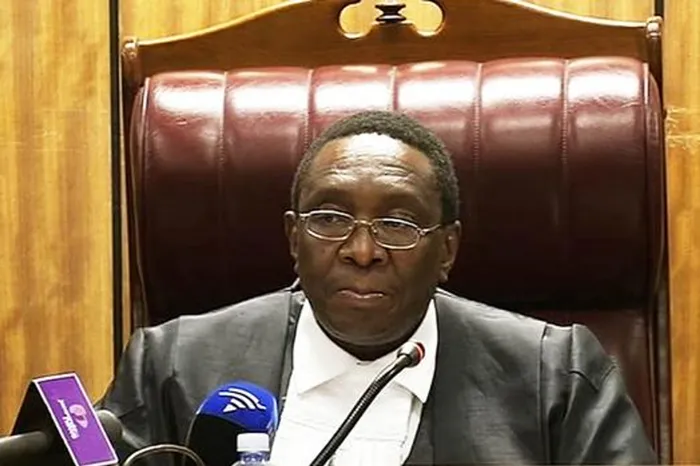Judge Dunstan Mlambo recommended as South Africa's next deputy chief justice

Judge President Dunstan Mlambo has been recommended by the JSC to be South Africa's next deputy chief justice.
Image: File
Following the public interview process over two days last week, the Judicial Service Commission (JSC) resolved to recommend Gauteng Judge President Dunstan Mlambo to be the country’s next deputy chief justice.
It will accordingly advise President Cyril Ramaphosa that Judge Mlambo is a suitable candidate for this important position, but the president has the final say in the matter. The position of deputy chief justice has been vacant since September 1 last year, when the now chief justice, Mandisa Maya (then deputy chief justice), was appointed in her current position.
The other two candidates who were interviewed alongside Judge Mlambo were Free State Judge President Cagney Musi and Northern Cape Judge President Pule Tlaletsi. At 65, Judge Mlambo was the oldest candidate, which means that, if appointed, he would have to retire before his stint as Judge Maya’s second in command comes to an end.
Judge Mlambo told the JSC commission during his interview that his track record as a judge speaks for itself. He said when he earlier took over the labour court, it was in a dysfunctional state, "to put it mildly". But he managed to turn it around.
He also said during his interview that he is a team leader and, if appointed, he will continue in that leadership philosophy. He heads two of the busiest courts in the country - Pretoria and Johannesburg.
He has also implemented plans to streamline the litigation process in civil matters, which has clogged the court rolls and resulted in dates being allocated for civil trials far in the future. Since March this year, as per a directive issued by him, Judge Mlambo directed that no civil trial (where evidence has to be led) will be allocated a trial date before the parties have tried to resolve their issues through mediation.
This is a step criticised by some in the legal fraternity, and it is the subject of a judicial challenge by some lawyers.
Online group Judges Matter, meanwhile, commented that on paper, Judge Mlambo’s CV makes him the most prepared to assume the hefty role of deputy chief justice of South Africa. After serving at the labour court, he moved to the Gauteng High Court, Johannesburg in 2000 and spent five years there.
In 2005, he was promoted to the Supreme Court of Appeal, as one of the first Black judges in that court. Later, in 2010, in a move that surprised many, Mlambo put his name forward to head up the Labour Court as Judge President, succeeding former Chief Justice Raymond Zondo.
Two years later, he took on the role as judge president of the Gauteng High Court. Judge Mlambo has previously acted at the Constitutional Court. It is in his role as Judge President of the Gauteng High Court that Mlambo has made his mark — and some believe this role has prepared him to be deputy chief justice, Judges Matter said.
“Judge President Mlambo is highly regarded not just as a judicial leader and administrator, but also as an innovative leader,” the online group said. Judges Matter also noted that Judge Mlambo is praised for introducing and sustaining Caselines, a virtual case management system that allows the filing and processing of court documents online.
Gauteng was the first High Court where a case could be dealt with completely online from start to finish. By 2025, more than half of the superior courts had operational Caselines, it said. It was further noted that Judge Mlambo leads the country’s largest contingent of almost 90 judges spread between Johannesburg and Pretoria (compare this to the second highest, the Western Cape, with 45 judges).
Related Topics: